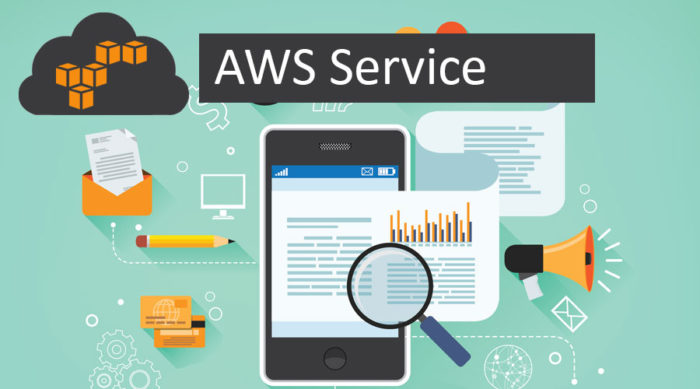- March 30, 2020 10:51 am
- by Deepthy
- March 30, 2020 10:51 am
- by Deepthy

Today, a majority of enterprises are relying on cloud computing for storage, data backup, software development, disaster recovery, virtual desktops, and even for big data analytics. The growing demand for cloud computing platforms made cloud providers come up with several deployment strategies that will ensure to meet the demands of their customers.
If you are planning for a migration to the cloud, it is best to consider Amazon Web Services for cloud computing.
AWS provides three main types of cloud computing services for its customers. This includes Infrastructure as a Service(IaaS), Platform as a Service(PaaS), and Software as a Service(SaaS). Businesses can select the right set of services for their needs from these categories.
Elastic Compute Cloud (EC2): Businesses can use EC2 to fully control their computing resources. It delivers metered by the second single and multi-tenant virtual machines, as well as bare-metal servers.
Amazon Simple Storage Service (S3): S3 is an object storage service that lets you collect, store and analyze huge sets of data from anywhere. This means businesses that range from small to large can leverage it to store and analyze large amounts of data for mobile applications, websites, enterprise applications, big data analytics, and IoT devices.
Amazon Aurora: It is a relational database built for the cloud and it is compatible with Postgress SQL and MySQL. Aurora is 3 times faster when compared with PostgreSQL and 5 times faster when compared to MySQL databases.
Amazon DynamoDB: It was built to handle applications that get trillions of requests per second. It is a fully managed service, so you don’t have to worry about patching and upgrading your databases to the latest version.
Amazon Relational Database Service (RDS): It simplifies database management by automating extended hours of admin tasks. With less operational overhead, your business can focus on optimizing applications and getting faster results.
AWS Lambda: It is a compute service that runs your backend code in response to events such as updates to Amazon DynamoDB table, Data in Amazon kinesis stream, object uploads to S3 Buckets, or in-app activity. Once you upload your code to lambda, the service handles all the capacities, scaling, patching and the administration of your infrastructure to run your code.
In this blog post, we will point out the reasons why should you consider Amazon Web Services for Cloud Computing?
AWS is more secure and reliable when compared to other cloud computing providers that are available today.
As business owners are concerned more about the security of their information in the cloud, they are willing to spend billions of dollars to secure their top-secret workloads. Instead of shelling loads of money for building on-premise environments, it’s better to choose a secure and reliable cloud computing environment. Hopefully, AWS is the best cloud platform that they can leverage in terms of security and reliability. Today, highly regulated organizations say they can operate more efficiently in the AWS cloud than in their own data centers.
AWS has got more than 69 Availability Zones (AZ) that are spread throughout the world and have a network that is specifically built to secure their customer’s information, sensitive data, devices, and applications.
Amazon Web Services has fewer downtimes and high network availability when compared with other cloud providers. Its multi-Availability Zone (AZ) architecture is the reason behind its high network availability and low downtime. These Availability Zones are built for delivering uninterrupted performance, even during worst-case scenarios such as power loss, terror attacks, and other disasters.
Building an on-premise infrastructure that can handle millions of requests per second is highly essential to the long-term success of any business.
AWS IaaS allows the business to be highly flexible and leverage the infinite scalability of the cloud, which means it can automatically scale based on their usage.
By leveraging Amazon Web Services, businesses will have the added advantage to instantly scale up or scale down with their business needs. This will greatly reduce costs and improves the ability of the business to meet the demands of its users.
The main advantage of using AWS is that they won’t charge their users to pay for all the services that are present on the platform. AWS only charges its users only when they consume their storage or any resources. This is probably the coolest feature of Amazon Web Services that attract business when compared with other platforms such as Oracle, Alibaba Cloud, etc.
With AWS, businesses have enough flexibility to decide where to run their workloads. Businesses who prefer to run their applications globally has the flexibility to select from any of the Availability Zones. In addition to that, AWS provides AWS Wavelength or AWS Local Zones for those who need to run their applications with single-digit millisecond latencies to mobile devices.
From the above post, it is clear why should you consider Amazon Web Services for cloud computing. It is the most efficient and agile cloud platform that is suitable for all types of businesses, no matter its size. Its high security, reliability, scalability, and availability make it the best cloud computing platform that is available today.
Want to migrate your data to AWS cloud? Get a free consultation from Vofox Solutions to make your business stand out from your competitors.
Guaranteed Response within One Business Day!

How Much Does It Cost to Design an App?

Angular Best Practices For Web Applications

How to Set Up a Development Environment in React.JS?

What are the 6 Models Used In SDLC?

Why React Front-End Development is the Best